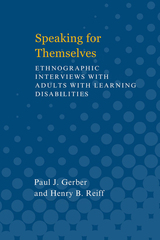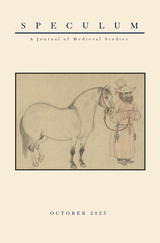4 books about Chaotic behavior in systems
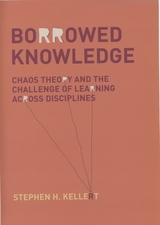
Borrowed Knowledge
Chaos Theory and the Challenge of Learning across Disciplines
Stephen H. Kellert
University of Chicago Press, 2008
What happens to scientific knowledge when researchers outside the natural sciences bring elements of the latest trend across disciplinary boundaries for their own purposes? Researchers in fields from anthropology to family therapy and traffic planning employ the concepts, methods, and results of chaos theory to harness the disciplinary prestige of the natural sciences, to motivate methodological change or conceptual reorganization within their home discipline, and to justify public policies and aesthetic judgments.
Using the recent explosion in the use (and abuse) of chaos theory, Borrowed Knowledge and the Challenge of Learning across Disciplines examines the relationship between science and other disciplines as well as the place of scientific knowledge within our broader culture. Stephen H. Kellert’s detailed investigation of the myriad uses of chaos theory reveals serious problems that can arise in the interchange between science and other knowledge-making pursuits, as well as opportunities for constructive interchange. By engaging with recent debates about interdisciplinary research, Kellert contributes a theoretical vocabulary and a set of critical frameworks for the rigorous examination of borrowing.
Using the recent explosion in the use (and abuse) of chaos theory, Borrowed Knowledge and the Challenge of Learning across Disciplines examines the relationship between science and other disciplines as well as the place of scientific knowledge within our broader culture. Stephen H. Kellert’s detailed investigation of the myriad uses of chaos theory reveals serious problems that can arise in the interchange between science and other knowledge-making pursuits, as well as opportunities for constructive interchange. By engaging with recent debates about interdisciplinary research, Kellert contributes a theoretical vocabulary and a set of critical frameworks for the rigorous examination of borrowing.
[more]
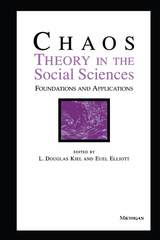
Chaos Theory in the Social Sciences
Foundations and Applications
L. Douglas Kiel and Euel Elliott, Editors
University of Michigan Press, 1997
Chaos Theory in the Social Sciences: Foundations and Applications offers the most recent thinking in applying the chaos paradigm to the social sciences. The book explores the methodological techniques--and their difficulties--for determining whether chaotic processes may in fact exist in a particular instance and examines implications of chaos theory when applied specifically to political science, economics, and sociology. The contributors to the book show that no single technique can be used to diagnose and describe all chaotic processes and identify the strengths and limitations of a variety of approaches.
The essays in this volume consider the application of chaos theory to such diverse phenomena as public opinion, the behavior of states in the international arena, the development of rational economic expectations, and long waves.
Contributors include Brian J. L. Berry, Thad Brown, Kenyon B. DeGreene, Dimitrios Dendrinos, Euel Elliott, David Harvey, L. Ted Jaditz, Douglas Kiel, Heja Kim, Michael McBurnett, Michael Reed, Diana Richards, J. Barkley Rosser, Jr., and Alvin M. Saperstein.
L. Douglas Kiel and Euel W. Elliott are both Associate Professors of Government, Politics, and Political Economy, University of Texas at Dallas.
[more]
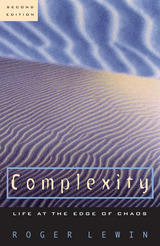
Complexity
Life at the Edge of Chaos
Roger Lewin
University of Chicago Press, 2000
"Put together one of the world's best science writers with one of the universe's most fascinating subjects and you are bound to produce a wonderful book. . . . The subject of complexity is vital and controversial. This book is important and beautifully done."—Stephen Jay Gould
"[Complexity] is that curious mix of complication and organization that we find throughout the natural and human worlds: the workings of a cell, the structure of the brain, the behavior of the stock market, the shifts of political power. . . . It is time science . . . thinks about meaning as well as counting information. . . . This is the core of the complexity manifesto. Read it, think about it . . . but don't ignore it."—Ian Stewart, Nature
This second edition has been brought up to date with an essay entitled "On the Edge in the Business World" and an interview with John Holland, author of Emergence: From Chaos to Order.
"[Complexity] is that curious mix of complication and organization that we find throughout the natural and human worlds: the workings of a cell, the structure of the brain, the behavior of the stock market, the shifts of political power. . . . It is time science . . . thinks about meaning as well as counting information. . . . This is the core of the complexity manifesto. Read it, think about it . . . but don't ignore it."—Ian Stewart, Nature
This second edition has been brought up to date with an essay entitled "On the Edge in the Business World" and an interview with John Holland, author of Emergence: From Chaos to Order.
[more]
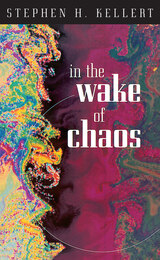
In the Wake of Chaos
Unpredictable Order in Dynamical Systems
Stephen H. Kellert
University of Chicago Press, 1993
Chaos theory has captured scientific and popular attention. What began as the discovery of randomness in simple physical systems has become a widespread fascination with "chaotic" models of everything from business cycles to brainwaves to heart attacks. But what exactly does this explosion of new research into chaotic phenomena mean for our understanding of the world? In this timely book, Stephen Kellert takes the first sustained look at the broad intellectual and philosophical questions raised by recent advances in chaos theory—its implications for science as a source of knowledge and for the very meaning of that knowledge itself.
[more]
READERS
Browse our collection.
PUBLISHERS
See BiblioVault's publisher services.
STUDENT SERVICES
Files for college accessibility offices.
UChicago Accessibility Resources
home | accessibility | search | about | contact us
BiblioVault ® 2001 - 2025
The University of Chicago Press



